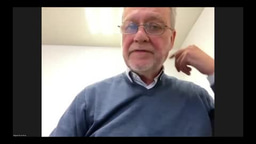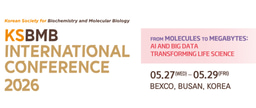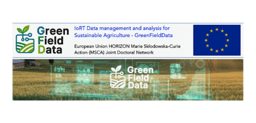
It's nothing new. The whole world has had to adapt to the current circumstances: the Covid-19 pandemic. But, how does the disruption caused by the pandemic affect research? Here’s my perspective as a Spanish researcher working at the University of Gothenburg in Sweden.
I work in the Mucins Biology Groups at the Department of Medical Biochemistry and Cell Biology where we study secreted and transmembrane mucins in health and disease. We are an interdisciplinary constellation of 30 PhD students, postdocs and technicians. We combine molecular biology and genetic mouse models with unique techniques developed in our laboratory to quantify mucin-based barriers in the intestine. In addition, we collaborate with the Sahlgrenska Hospital at University of Gothenburg where we analyze human samples from different pathologies including inflammatory bowel diseases (IBD) and chronic obstructive pulmonary disease (COPD).
Covid-19 has affected not only our personal lives, but also our research and our professional careers. Early-career scientists such as postdocs are especially vulnerable during these uncertain times since we are in a process of establishing an independent career in science.
Before the Covid-19 pandemic, I used to have several meetings per week and a 9:00–17:00 working hours timetable. Everyone in the lab had lunch together and we would discuss science, new exciting upcoming research projects and plans for the weekend. We even had a Beer Club on Friday evenings!
Things changes dramatically after the Covid-19 outbreak; our lab has had to adapt to how we conduct research in order to keep the virus out of the lab and continue our research with as little disruption as possible. Thus, we have implemented regulations and recommendations from the Swedish Government: social distancing, unusual schedules to work in the lab, online meetings and facemasks 24/7. Of course, we all follow these recommendations outside the lab to protect ourselves and our lab mates from contracting the virus. Despite the difficulties of performing science in this way, we have had no Covid-19 cases in our lab until now (knocking on wood!), which means that, so far, Covid-19 recommendations carried out in our lab have been successful.
Coronavirus has disrupted research and as many countries struggle economically to combat the pandemic, resources allocated to science have become scarcer. Research projects are not as dynamic as before due to social distancing. Recurrent delays and lack of basic lab materials has made us aware of how to use existing resources in an efficient way in our projects. Yet, our group managed to publish nine scientific papers in high-impact journals. In fact, I published my first paper as a postdoc during this pandemic! Looking on the bright side of things, the pandemic has transformed us to more efficient, cleverer and better scientists!
Due to the travel restrictions related to the pandemic, scientific meetings and congresses have been cancelled or postponed, which limits networking. I used to go to two or three scientific meetings per year where I had the possibility to establish new collaborations with other researchers in my area and share my findings. However, new technology based on conferencing tools let us meet online to continue networking. It’s not the same, but at least it’s something!
In summary, Covid-19 has had a huge impact on society and science is not an exception. However, I have learnt three important lessons in how to overcome a crisis in the future:
- Our work environment is critical for a successful scientific career. In my case, I feel lucky since we have been able to protect ourselves against the virus whilst continuing to make progress with our research.
- Limited resources and reduced productivity have been the main problems in science due to various restrictions. However, with good strategy and efficient use of resources we have been able to maintain a high level of research output.
- Covid-19 has had a global negative impact on the economy, development and the society as a whole. If we advance our understanding of the disease mechanism, we can develop therapeutic strategies that help us win the battle against the pandemic. Thus, scientists and research are crucial for finding sustainable solutions to the pandemic. We can use the pandemic to devise strategies for collaborations and research output that help us overcome future challenges in a better way.
And, as Elton John’s song says…
I'm still standing!!!
Top image of post: by Tumisu from Pixabay





Join the FEBS Network today
Joining the FEBS Network’s molecular life sciences community enables you to access special content on the site, present your profile, 'follow' contributors, 'comment' on and 'like' content, post your own content, and set up a tailored email digest for updates.
Bravo Elena and thank you for a beautiful article :)